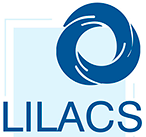Perception of empowerment and therapeutic adherence in type 2 diabetes and lycemic control in patients of a primary health care unit from Tabasco, Mexico.
DOI:
https://doi.org/10.19136/hs.a18n2.2661Abstract
Objective: To analyze the perception of empowerment and therapeutic adherence in patients with Type 2 Diabetes and their glycemic control in a primary care unit in Tabasco, Mexico.
Materials and methods: Observational, cross-sectional and analytical study in a sample of 100 patients with diabetes. We analyzed variables of perception of empowerment, therapeutic adherence, sociodemographic and clinical. As a dependent variable, the figure of glycosylated hemoglobin HgA1c was taken as the gold standard of metabolic control. An instrument integrated by the DES-28 scale was applied to assess perception of empowerment, a questionnaire to assess the perception of Adherence of Bayarre-Grau. For the analysis, descriptive and inferential statistics (Pearson’s X2) were used with the SPSS V22.0 software.
Results: The patients with diabetes were women 72%, average of age 56 years, married 60%, housewives 68%, primary studies 43%, average BMI 30.8, average of years with diabetes 8.9, main complication diabetic neuropathy 61% , mean of HgA1 figure of 8.675%, with HgA1 figure altered 82%, patients perceived to be empowered were 86%, of these, 80.2% showed lack of control with an x2 of 1,300 and a value of p = .000, with adherence 84%, of these patients resulted with altered glycemic control 83.3% with an x2.632 and a value of p = .000.
Conclusions: Patients who feel empowered and adherent to treatment in our study have inadequate glycemic control, which allows us to conclude that it is necessary to investigate other factors that go beyond perception and an area of opportunity would be to implement effective strategies to achieve results successful.
Key words: Type 2 Diabetes mellitus, Self-efficacy, Therapeutic adherence, Glycosylated hemoglobin (HgA1c).
Downloads
References
International Diabetes Federation. Diabetes Atlas de La FID, Octava edición 2017
Chatterjee S.,Khunti K.,Davies M.J.Type 2 diabetes. The Lancet. 2017;389(10085): 2239-2251. DOI: https://doi. org/10.1016/S0140-6736(17)30058-2
Instituto Nacional de Estadística y Geografía (INEGI). Estadísticas de mortalidad 2016.
Instituto Nacional de Estadística y Geografía (INEGI). Estadísticas de mortalidad 2017.
Fumagalli L.P, Radaelli G, Lettieri a E., Bertele’ P, Masella C. Patient Empowerment and its neighbours:
Clarifying the boundaries and their mutual relationships. Health Policy 2015; 3 (119): 384–394. DOI: 10.1016/j.healthpol.2014.10.017
Funnell M. And Anderson R. Patient Empowerment: Myths and Misconceptions. Patient Educ Couns. 2010; 3 (79): 277–282. DOI: 10.1016/j.pec.2009.07.025
Alarcón C,Hernández L. , Argüelles V. ,Campos Y. Apoyo social y su asociación con el autocuidado de la dieta en personas con diabetes. Rev. Liberabit. 2017; 23 (1):111-12.
DOI: https://doi.org/10.24265/liberabit.2017.v23n1.08
Serrani DJL. Elders Health Empowerment Scale: Spanish adaptation and psychometric analysis . Rev. Colombia Médica. 2014;4(45):179-185.
Urbán B.R., Coghlan J.J.,Castañeda O.Estilo de vida y control glucémico en pacientes con Diabetes Mellitus en el primer nivel de atención. Rev. Atenc. Fam. 2015; 22(3):68-71.
https://doi.org/10.1016/S1405-8871(16)30054-2
Carrera P, Abad J.M.,Aguilar I, Rabanaque M.J. Comorbilidad como predictor de utilización de servicios sanitarios y mortalidad en pacientes con diabetes. Gac.Sanit.2015;29(1):10-14.
https://doi.org/10.1016/j.gaceta.2014.07.008
Urzúa A, Cabrera C, González C, Arenas P, Guzmán M, Caqueo A, Villalobos P. et al. Análisis preliminares de la versión adaptada en población chilena de la escala de adherencia terapéutica en diabetes mellitus tipo 2 - EATDM-III. Rev. méd. Chile, 2015; 143(6): 733-743. http://dx.doi.org/10.4067/S0034- 98872015000600006
Bertoldo P, Ascar G, Campana Y, Martín T, Moretti M, Tiscornia L. Cumplimiento terapéutico en pacientes con enfermedades crónicas. Rev Cubana Farm.2013;47( 4 ): 468-474.
Castillo M, Martín L. Almenares K. Adherencia terapéutica y factores influyentes en pacientes con diabetes mellitus tipo 2. Revista Cubana de Medicina General Integral [revista en Internet]. 2018 [consultado 2018 Ago 20];33(4):[aprox. 0 p.]. Disponible en: http://www.revmgi. sld.cu/index.php/mgi/article/view/369
F.López, I. Moral., A. Aguado, C.Cols, J.Mancera, M. Alonso. et al. Impacto de la inercia terapéutica y del grado de adherencia al tratamiento en los objetivos de control en personas con diabetes. Consultado el 4 julio 2018 en: http:// www.elsevier.es/es-revista-medicina-familia-semergen- 40-avance-resumen-impacto-inercia-terapeutica-del-grado-S1138359317303015
DOI. https://doi.org/10.1016/j.semerg.2017.10.002
Hernández M.A, Campbell J.A, Walker R. J, Smalls B.L, Davis K. S, Egede L.E. Diabetes empowerment, medication adherence and self-care behaviors in adults with type 2 diabetes. Diabetes Technology & Therapeutics. 2012;14(7): 630-4. DOI: 10.1089/dia.2011.0287
Domínguez Mon A. Los cuidados de la salud en personas que viven con diabetes: enfoque etnográfico antropológico y perspectiva de género. SALUD COLECTIVA. 2017;13(3):375-390. doi: 10.18294/sc.2017.1156
Downloads
Published
Issue
Section
License
Copyright (c) 2019 HORIZONTE SANITARIO

This work is licensed under a Creative Commons Attribution-NonCommercial-ShareAlike 4.0 International License.





























